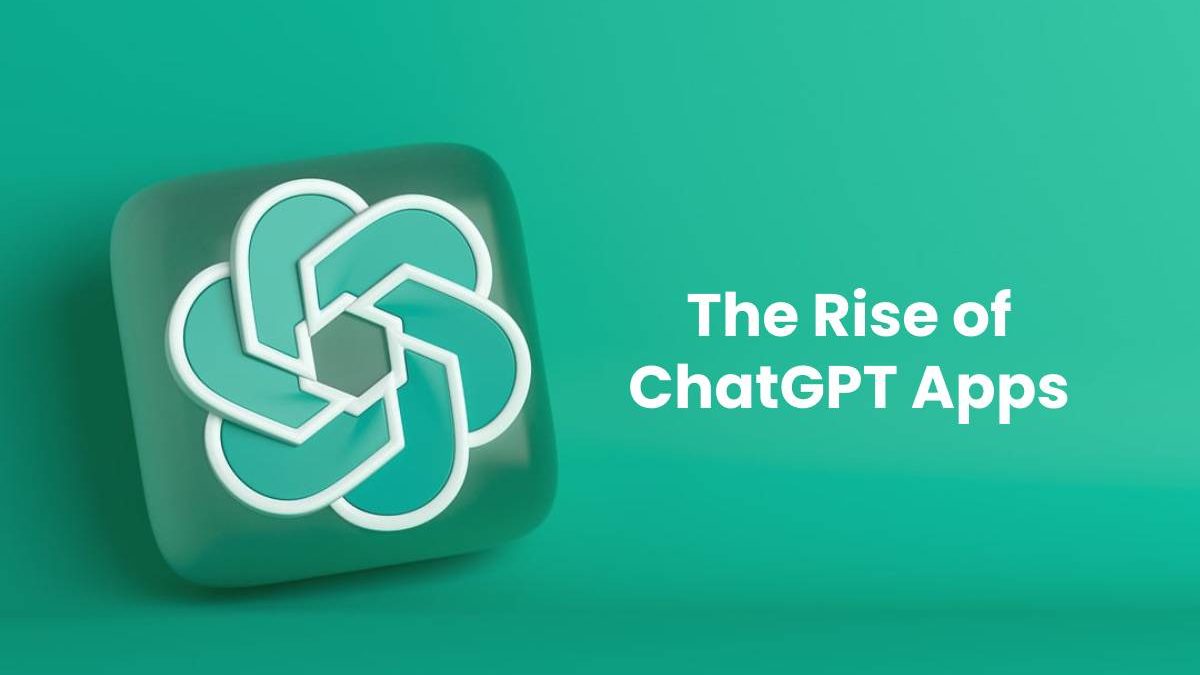In recent years, artificial intelligence has made remarkable strides in reshaping the way we interact with technology. From virtual assistants to recommendation systems, AI has seamlessly integrated into our daily lives, making tasks more convenient and efficient. One of the most intriguing developments in AI interaction is the rise of ChatGPT apps.
These apps, powered by advanced language models, have the potential to revolutionize how we communicate, automate tasks, and access information. In this blog, we delve into the world of ChatGPT apps, examining their evolution, capabilities, and the transformative impact they are bringing to various sectors.
Table of Contents
The Evolution of ChatGPT Apps
ChatGPT, developed by OpenAI, represents a significant advancement in natural language processing. It’s built upon GPT (Generative Pre-trained Transformer) architecture, which has revolutionized language understanding and generation tasks. Initially introduced as a text-based AI model, GPT-3 and its subsequent iterations have paved the way for chatgpt alternative that provide interactive and dynamic conversational experiences.
GPT-3’s immense size and training data have enabled it to understand context, generate coherent responses, and even mimic human-like conversation styles. This breakthrough and initiatives like ChatGPT Certification have laid the foundation for creating applications that can engage users in meaningful interactions across multiple domains. This certification equips individuals with the skills to leverage ChatGPT effectively, fostering the development of advanced conversational agents. With ChatGPT Certification, professionals can confidently navigate the realm of AI-driven communication and contribute to creating more sophisticated and contextually aware applications.
Capabilities of ChatGPT Apps
ChatGPT apps leverage the capabilities of advanced language models to offer a wide range of functionalities:
Conversational Interfaces: ChatGPT apps enable users to engage in natural conversations with AI, asking questions, seeking advice, and obtaining information. These apps can process and respond to text inputs, allowing for more intuitive interactions.
Task Automation: Beyond basic Q&A, ChatGPT apps can automate tasks by interpreting user instructions and performing actions accordingly. From setting reminders and drafting emails to generating code snippets, the possibilities are extensive.
Content Generation: Content creators can benefit from ChatGPT apps by using them to brainstorm ideas, create outlines, and even generate written content. The AI’s ability to suggest relevant information and sentence structures streamlines the creative process.
Language Translation: ChatGPT apps can facilitate real-time language translation, breaking down communication barriers and making global interactions smoother.
Personalization: These apps can be fine-tuned to reflect individual preferences, making interactions more tailored and relevant to users’ needs.
Multimodal Interaction: With advancements in AI, ChatGPT apps are also incorporating images and other data formats into their interactions, providing a richer experience.
Transforming Industries
The rise of ChatGPT apps is causing ripples across various industries:
Healthcare: ChatGPT apps are supporting medical professionals by providing quick access to information and assisting in diagnosing medical conditions based on patient descriptions.
Education: These apps are transforming how students learn by offering personalized tutoring, answering questions, and assisting with research.
Customer Service: Many businesses are integrating ChatGPT apps into their websites to provide instant customer support, helping to resolve queries and issues efficiently.
Content Creation: Content creators are using ChatGPT apps to generate engaging articles, social media posts, and marketing materials, saving time and sparking creativity.
Coding and Development: Developers are leveraging these apps to generate code snippets, debug issues, and even assist in programming tasks.
Challenges and Ethical Considerations
While ChatGPT apps offer exciting possibilities, they also raise challenges. Ensuring the accuracy of information, preventing biased responses, and handling sensitive user data are critical concerns. The risk of misuse, such as generating harmful content or impersonating individuals, also requires careful attention.
Ethical use guidelines and responsible AI interaction practices are essential to mitigate these challenges. Developers and users alike must be aware of the potential pitfalls and exercise caution when utilizing ChatGPT apps.
Conclusion
The rise of ChatGPT apps represents an exciting leap in AI interaction, opening doors to enhanced communication, automation, and creativity. From simplifying complex tasks to reshaping industries, the transformative impact of these apps is undeniable. As technology continues to evolve, it’s crucial for developers, users, and policymakers to collaborate in shaping the future of AI interaction responsibly, ensuring that the benefits of ChatGPT apps are harnessed for the betterment of society.
In conclusion, ChatGPT apps are not just changing the way we interact with technology; they are shaping the very landscape of human-AI interaction, promising a future where seamless communication and intelligent assistance become an integral part of our lives. As we explore this next frontier of AI interaction, it’s imperative that we navigate it with a balance of excitement and responsibility, ensuring that the potential benefits are maximized while addressing the ethical considerations that come along with it.

